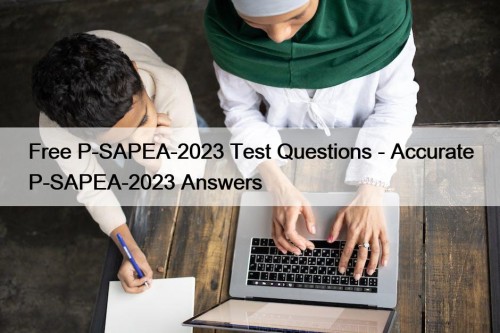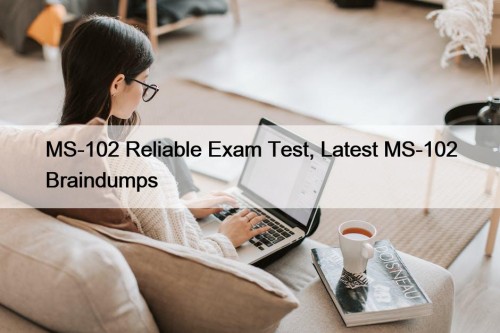Most Popular
 Exam Salesforce Salesforce-Certified-Administrator Details | Salesforce-Certified-Administrator Practice Exam Online
Exam Salesforce Salesforce-Certified-Administrator Details | Salesforce-Certified-Administrator Practice Exam Online
2025 Latest LatestCram Salesforce-Certified-Administrator PDF Dumps and Salesforce-Certified-Administrator Exam Engine ...
 Free P-SAPEA-2023 Test Questions - Accurate P-SAPEA-2023 Answers
Free P-SAPEA-2023 Test Questions - Accurate P-SAPEA-2023 Answers
BTW, DOWNLOAD part of VCEPrep P-SAPEA-2023 dumps from Cloud Storage: ...
 MS-102 Reliable Exam Test, Latest MS-102 Braindumps
MS-102 Reliable Exam Test, Latest MS-102 Braindumps
BTW, DOWNLOAD part of TestPassed MS-102 dumps from Cloud Storage: ...



Quiz IAPP - CIPP-US - Certified Information Privacy Professional/United States (CIPP/US) Unparalleled Practice Mock

DOWNLOAD the newest Free4Torrent CIPP-US PDF dumps from Cloud Storage for free: https://drive.google.com/open?id=14zzJoL9-LNUoKBcVWfwj1vYts3_3t5LE
The customers can immediately start using the Certified Information Privacy Professional/United States (CIPP/US) (CIPP-US) exam dumps of Free4Torrent after buying it. In this way, one can save time and instantly embark on the journey of Certified Information Privacy Professional/United States (CIPP/US) (CIPP-US) test preparation. 24/7 customer service is also available at Free4Torrent. Feel free to reach our customer support team if you have any questions about our CIPP-US Exam Preparation material.
The International Association of Privacy Professionals (IAPP) CIPP-US (Certified Information Privacy Professional/United States) certification is a globally recognized certification for professionals involved in privacy and data protection in the United States. Certified Information Privacy Professional/United States (CIPP/US) certification is specifically designed to test and validate the candidate's knowledge and understanding of the US privacy laws and regulations. Professionals who hold this certification have demonstrated their expertise in the field of privacy and data protection, and their ability to navigate the complex and ever-changing legal landscape.
IAPP CIPP-US Certification Exam is a globally recognized certification program that tests the knowledge and skills of professionals who work with personal data in the United States. CIPP-US exam covers a wide range of topics related to US privacy laws and regulations, data protection, information security, and risk management. Certified Information Privacy Professional/United States (CIPP/US) certification is ideal for professionals who work in legal, compliance, risk management, IT, and data security and is recognized by employers worldwide.
IAPP CIPP-US (Certified Information Privacy Professional/United States) Exam is a globally recognized certification that is designed for professionals who work in the field of data privacy in the United States. Certified Information Privacy Professional/United States (CIPP/US) certification is administered by the International Association of Privacy Professionals (IAPP), which is the largest and most comprehensive global information privacy community. The CIPP-US exam covers a wide range of topics related to privacy laws, regulations, and practices in the United States.
Certification CIPP-US Exam Dumps - Certification CIPP-US Exam
Free4Torrent is a trusted and reliable platform that has been helping CIPP-US exam candidates for many years. Over this long time period countless IAPP CIPP-US exam questions candidates have passed their dream CIPP-US certification exam. They all got help from IAPP Exam Questions and easily passed their challenging CIPP-US PDF exam. You can also trust top-notch Certified Information Privacy Professional/United States (CIPP/US) (CIPP-US) exam questions and start preparation with complete peace of mind and satisfaction.
IAPP Certified Information Privacy Professional/United States (CIPP/US) Sample Questions (Q160-Q165):
NEW QUESTION # 160
SCENARIO
Please use the following to answer the next QUESTION:
Larry has become increasingly dissatisfied with his telemarketing position at SunriseLynx, and particularly with his supervisor, Evan. Just last week, he overheard Evan mocking the state's Do Not Call list, as well as the people on it. "If they were really serious about not being bothered," Evan said, "They'd be on the national DNC list. That's the only one we're required to follow. At SunriseLynx, we call until they ask us not to." Bizarrely, Evan requires telemarketers to keep records of recipients who ask them to call "another time." This, to Larry, is a clear indication that they don't want to be called at all. Evan doesn't see it that way.
Larry believes that Evan's arrogance also affects the way he treats employees. The U.S. Constitution protects American workers, and Larry believes that the rights of those at SunriseLynx are violated regularly. At first Evan seemed friendly, even connecting with employees on social medi a. However, following Evan's political posts, it became clear to Larry that employees with similar affiliations were the only ones offered promotions.
Further, Larry occasionally has packages containing personal-use items mailed to work. Several times, these have come to him already opened, even though this name was clearly marked. Larry thinks the opening of personal mail is common at SunriseLynx, and that Fourth Amendment rights are being trampled under Evan's leadership.
Larry has also been dismayed to overhear discussions about his coworker, Sadie. Telemarketing calls are regularly recorded for quality assurance, and although Sadie is always professional during business, her personal conversations sometimes contain sexual comments. This too is something Larry has heard Evan laughing about. When he mentioned this to a coworker, his concern was met with a shrug. It was the coworker's belief that employees agreed to be monitored when they signed on. Although personal devices are left alone, phone calls, emails and browsing histories are all subject to surveillance. In fact, Larry knows of one case in which an employee was fired after an undercover investigation by an outside firm turned up evidence of misconduct. Although the employee may have stolen from the company, Evan could have simply contacted the authorities when he first suspected something amiss.
Larry wants to take action, but is uncertain how to proceed.
In what area does Larry have a misconception about private-sector employee rights?
- A. The enforceability of local law
- B. The applicability of federal law
- C. The definition of tort law
- D. The strict nature of state law
Answer: B
NEW QUESTION # 161
SCENARIO
Please use the following to answer the next QUESTION:
Cheryl is the sole owner of Fitness Coach, Inc., a medium-sized company that helps individuals realize their physical fitness goals through classes, individual instruction, and access to an extensive indoor gym. She has owned the company for ten years and has always been concerned about protecting customer's privacy while maintaining the highest level of service. She is proud that she has built long-lasting customer relationships.
Although Cheryl and her staff have tried to make privacy protection a priority, the company has no formal privacy policy. So Cheryl hired Janice, a privacy professional, to help her develop one.
After an initial assessment, Janice created a first of a new policy. Cheryl read through the draft and was concerned about the many changes the policy would bring throughout the company. For example, the draft policy stipulates that a customer's personal information can only be held for one year after paying for a service such as a session with personal trainer. It also promises that customer information will not be shared with third parties without the written consent of the customer. The wording of these rules worry Cheryl since stored personal information often helps her company to serve her customers, even if there are long pauses between their visits. In addition, there are some third parties that provide crucial services, such as aerobics instructors who teach classes on a contract basis. Having access to customer files and understanding the fitness levels of their students helps instructors to organize their classes.
Janice understood Cheryl's concerns and was already formulating some ideas for revision. She tried to put Cheryl at ease by pointing out that customer data can still be kept, but that it should be classified according to levels of sensitivity. However, Cheryl was skeptical. It seemed that classifying data and treating each type differently would cause undue difficulties in the company's day-to-day operations. Cheryl wants one simple data storage and access system that any employee can access if needed.
Even though the privacy policy was only a draft, she was beginning to see that changes within her company were going to be necessary. She told Janice that she would be more comfortable with implementing the new policy gradually over a period of several months, one department at a time. She was also interested in a layered approach by creating documents listing applicable parts of the new policy for each department.
What is the most likely risk of Fitness Coach, Inc. adopting Janice's first draft of the privacy policy?
- A. Leaving the company susceptible to violations by setting unrealistic goals
- B. Not being in standard compliance with applicable laws
- C. Failing to meet the needs of customers who are concerned about privacy
- D. Showing a lack of trust in the organization's privacy practices
Answer: A
NEW QUESTION # 162
Which federal act does NOT contain provisions for preempting stricter state laws?
- A. The Children's Online Privacy Protection Act (COPPA)
- B. The CAN-SPAM Act
- C. The Telemarketing Consumer Protection and Fraud Prevention Act
- D. The Fair and Accurate Credit Transactions Act (FACTA)
Answer: C
Explanation:
The federal act that does NOT contain provisions for preempting stricter state laws is the Telemarketing Consumer Protection and Fraud Prevention Act1. This act authorizes the Federal Trade Commission (FTC) to establish and enforce rules for telemarketing practices, such as the Do Not Call Registry, the prohibition of robocalls, and the disclosure of material information2. However, the act also explicitly states that it does not
"annul, alter, or affect, or exempt any person subject to the provisions of this section from complying with, the laws of any State with respect to telemarketing practices, except to the extent that those laws are inconsistent with any provision of this section, and then only to the extent of the inconsistency"1. This means that states can enact and enforce their own laws regarding telemarketing, as long as they are not less protective than the federal law. In contrast, the other three acts listed in the question do contain preemption clauses that limit or override the authority of states to regulate certain aspects of electronic communications, online privacy, and credit transactions345. References: 1: Telemarketing Consumer Protection and Fraud Prevention Act2: Telemarketing Sales Rule | Federal Trade Commission3: CAN-SPAM Act: A Compliance Guide for Business4: Children's Online Privacy Protection Rule ("COPPA") | Federal Trade Commission5: Fair and Accurate Credit Transactions Act of 2003 - Wikipedia : IAPP CIPP/US Certified Information Privacy Professional Study Guide, Chapter 5: Federal Trade Commission and Consumer Privacy, p. 144-145, 149-150,
154-155
NEW QUESTION # 163
SCENARIO
Please use the following to answer the next QUESTION
Felicia has spent much of her adult life overseas, and has just recently returned to the U.S. to help her friend Celeste open a jewelry store in Californi a. Felicia, despite being excited at the prospect, has a number of security concerns, and has only grudgingly accepted the need to hire other employees. In order to guard against the loss of valuable merchandise, Felicia wants to carefully screen applicants. With their permission, Felicia would like to run credit checks, administer polygraph tests, and scrutinize videos of interviews. She intends to read applicants' postings on social media, ask Question:s about drug addiction, and solicit character references. Felicia believes that if potential employees are serious about becoming part of a dynamic new business, they will readily agree to these requirements.
Felicia is also in favor of strict employee oversight. In addition to protecting the inventory, she wants to prevent mistakes during transactions, which will require video monitoring. She also wants to regularly check the company vehicle's GPS for locations visited by employees. She also believes that employees who use their own devices for work-related purposes should agree to a certain amount of supervision.
Given her high standards, Felicia is skeptical about the proposed location of the store. She has been told that many types of background checks are not allowed under California law. Her friend Celeste thinks these worries are unfounded, as long as applicants verbally agree to the checks and are offered access to the results. Nor does Celeste share Felicia's concern about state breach notification laws, which, she claims, would be costly to implement even on a minor scale. Celeste believes that even if the business grows a customer database of a few thousand, it's unlikely that a state agency would hassle an honest business if an accidental security incident were to occur.
In any case, Celeste feels that all they need is common sense - like remembering to tear up sensitive documents before throwing them in the recycling bin. Felicia hopes that she's right, and that all of her concerns will be put to rest next month when their new business consultant (who is also a privacy professional) arrives from North Carolina.
Based on Felicia's Bring Your Own Device (BYOD) plan, the business consultant will most likely advise Felicia and Celeste to do what?
- A. Adopt the same kind of monitoring policies used for work-issued devices.
- B. Reconsider the plan in favor of a policy of dedicated work devices.
- C. Weigh any productivity benefits of the plan against the risk of privacy issues.
- D. Make employment decisions based on those willing to consent to the plan in writing.
Answer: D
NEW QUESTION # 164
What practice do courts commonly require in order to protect certain personal information on documents, whether paper or electronic, that is involved in litigation?
- A. Hashing
- B. Encryption
- C. Deletion
- D. Redaction
Answer: D
NEW QUESTION # 165
......
If you don't have well-knit special basic knowledge and be block by CIPP-US exam so that you can't obtain the IAPP certification. However your company needs this certification, your supervisor requests you to obtain as soon as possible, please don't worry, CIPP-US valid exam questions vce can help you pass exam soon. If you don't know about our company and don't trust this kind of products in website, you may be out. Now purchasing CIPP-US Valid Exam Questions vce is a popular thing in this field since it is high pass rate at the first attempt.
Certification CIPP-US Exam Dumps: https://www.free4torrent.com/CIPP-US-braindumps-torrent.html
- Exam Sample CIPP-US Questions 😫 CIPP-US Passguide 🦨 Pdf CIPP-US Files 🏀 Open website ▷ www.free4dump.com ◁ and search for ▶ CIPP-US ◀ for free download 💗CIPP-US New Soft Simulations
- IAPP CIPP-US PDF 🪓 Search for ⏩ CIPP-US ⏪ and download exam materials for free through ➥ www.pdfvce.com 🡄 🪓Exam CIPP-US Syllabus
- Real Practice CIPP-US Mock - in www.prep4pass.com 🔲 Download ➤ CIPP-US ⮘ for free by simply searching on ⇛ www.prep4pass.com ⇚ 🧷CIPP-US Reliable Practice Materials
- CIPP-US New Braindumps Files 🥪 CIPP-US Latest Study Notes 🕔 CIPP-US Trustworthy Dumps 🥣 Search for 【 CIPP-US 】 and easily obtain a free download on 《 www.pdfvce.com 》 📧CIPP-US Test Practice
- New CIPP-US Test Papers 💐 Exam Sample CIPP-US Questions 🦏 CIPP-US Passguide 🛅 Search for “ CIPP-US ” and obtain a free download on ➡ www.examdiscuss.com ️⬅️ 🐕Exam CIPP-US Syllabus
- 2025 Practice CIPP-US Mock 100% Pass | Efficient Certification CIPP-US Exam Dumps: Certified Information Privacy Professional/United States (CIPP/US) 🧜 Search for ⇛ CIPP-US ⇚ and obtain a free download on ➠ www.pdfvce.com 🠰 🤩CIPP-US Test Practice
- Exam Sample CIPP-US Questions 🚲 CIPP-US Hot Spot Questions 🔸 CIPP-US Passguide ⛑ Simply search for 《 CIPP-US 》 for free download on ➤ www.real4dumps.com ⮘ 🤞Exam Sample CIPP-US Questions
- IAPP CIPP-US Exam is Easy with Our Trustable Practice CIPP-US Mock: Certified Information Privacy Professional/United States (CIPP/US) Effectively 👱 《 www.pdfvce.com 》 is best website to obtain 「 CIPP-US 」 for free download 🏚CIPP-US Dumps Free
- 2025 Practice CIPP-US Mock 100% Pass | Efficient Certification CIPP-US Exam Dumps: Certified Information Privacy Professional/United States (CIPP/US) 🥧 Download ➠ CIPP-US 🠰 for free by simply searching on 【 www.prep4pass.com 】 ⚒CIPP-US Hot Spot Questions
- CIPP-US Practice Engine 😅 CIPP-US Test Practice 🦇 CIPP-US New Soft Simulations 😓 Go to website ▷ www.pdfvce.com ◁ open and search for [ CIPP-US ] to download for free 🥖Pdf CIPP-US Files
- Features of IAPP CIPP-US Desktop Practice Exam Software 🧘 Search on { www.getvalidtest.com } for ➡ CIPP-US ️⬅️ to obtain exam materials for free download ⭕CIPP-US Passguide
- CIPP-US Exam Questions
- 15000n-01.duckart.pro xt.808619.com 15000n-06.duckart.pro lt.dananxun.cn 寧芙天堂.官網.com kejia.damianzhen.com 15000n-01.duckart.pro www.hola666.com paidai123.com www.hola666.com
P.S. Free 2025 IAPP CIPP-US dumps are available on Google Drive shared by Free4Torrent: https://drive.google.com/open?id=14zzJoL9-LNUoKBcVWfwj1vYts3_3t5LE
Tags: Practice CIPP-US Mock, Certification CIPP-US Exam Dumps, Certification CIPP-US Exam, CIPP-US Reliable Dumps Book, CIPP-US Certification Torrent